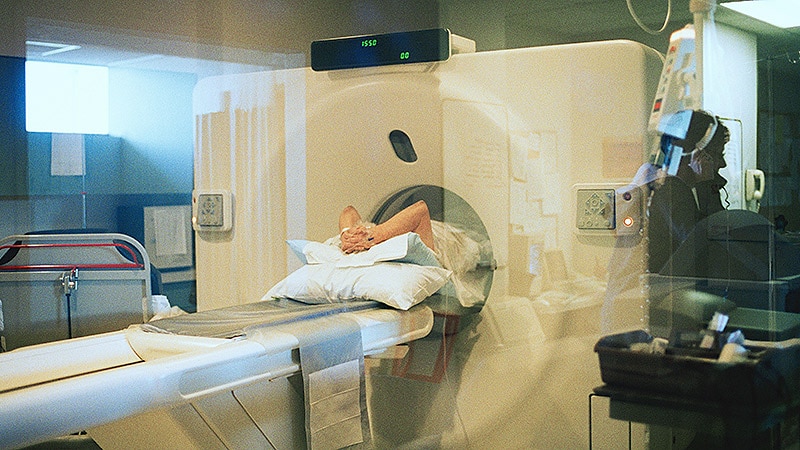Concepts de base
Lung cancer screening reveals hidden health risks beyond lung issues.
Résumé
Screening for lung cancer can uncover various health issues beyond the lungs due to the extensive coverage of low-dose CT scans. The 4-IN-THE-LUNG-RUN trial (4ITLR) is actively looking for coronary artery calcifications during lung cancer screenings, providing valuable insights into heart disease risks. The study highlights the potential benefits of incorporating cardiovascular screening into lung cancer screening programs, showcasing the broader impact of such initiatives.
Personnaliser le résumé
Réécrire avec l'IA
Générer des citations
Traduire la source
Vers une autre langue
Générer une carte mentale
à partir du contenu source
Voir la source
www.medscape.com
Lung Cancer Screening Unveils Hidden Health Risks
Stats
Lung cancer screening can provide information on ischemic heart disease, chronic obstructive pulmonary disease, and lung cancer.
53% of subjects had Agatston scores of 100 or more, indicating the need for treatment to prevent active coronary artery disease.
15% were at high risk for heart disease with scores of 400-999, and 16.2% were at very high risk with scores of 1000 or higher.
Men had a significantly higher risk of heart disease compared to women.
Citations
"We are basically targeting many birds with one low-dose stone." - Jelena Spasic MD, PhD
Idées clés tirées de
by M. Alexander... à www.medscape.com 03-28-2024
https://www.medscape.com/s/viewarticle/lung-cancer-screening-unveils-hidden-health-risks-2024a10005ve
Questions plus approfondies
How can the integration of cardiovascular screening into lung cancer screening programs improve overall health outcomes?
The integration of cardiovascular screening into lung cancer screening programs can significantly improve overall health outcomes by allowing for the early detection and management of heart disease, a leading cause of mortality worldwide. By actively looking for coronary artery calcifications during lung cancer screenings, healthcare providers can identify individuals at risk for heart disease and initiate appropriate interventions to prevent cardiovascular events. This proactive approach not only enhances the effectiveness of lung cancer screening programs but also addresses other prevalent health issues, ultimately leading to better health outcomes for participants.
What potential challenges or limitations might arise from actively looking for coronary artery calcifications during lung cancer screenings?
While actively looking for coronary artery calcifications during lung cancer screenings offers numerous benefits, there are potential challenges and limitations to consider. One challenge is the increased workload for healthcare providers in analyzing and interpreting additional cardiovascular findings, which may require specialized training and resources. Moreover, the identification of incidental findings like coronary calcifications can lead to unnecessary anxiety and further diagnostic procedures for individuals, potentially causing psychological distress. Additionally, the integration of cardiovascular screening into lung cancer programs may raise concerns about patient privacy and data security, especially with the use of artificial intelligence-based software for image analysis. Addressing these challenges through proper training, patient education, and data protection measures is essential to ensure the successful implementation of combined screening efforts.
How can advancements in artificial intelligence impact the future of disease detection and prevention in healthcare?
Advancements in artificial intelligence (AI) have the potential to revolutionize disease detection and prevention in healthcare by enhancing the accuracy, efficiency, and scalability of diagnostic processes. AI-powered software can analyze medical images, such as CT scans, with high precision and speed, enabling early detection of abnormalities and diseases like coronary artery calcifications during lung cancer screenings. This technology can assist healthcare providers in making more informed decisions, improving patient outcomes, and optimizing resource utilization. Furthermore, AI algorithms can continuously learn and adapt from data, leading to personalized risk assessments and preventive strategies tailored to individual patients. As AI continues to evolve, it holds promise for transforming healthcare delivery, promoting proactive disease management, and ultimately advancing public health initiatives.
0
